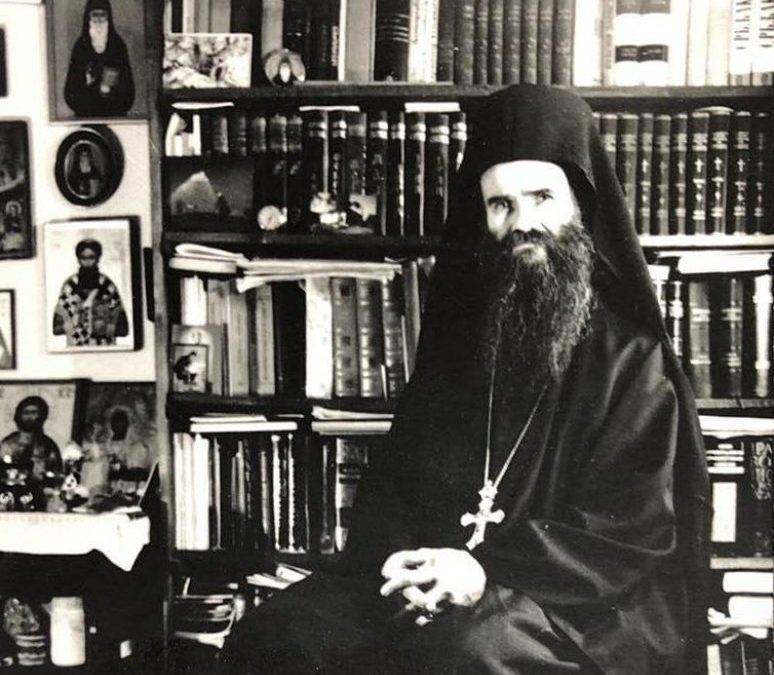
Metropolitan Amphilochius: The Sacred Mystery of the Person
In this short time, which I have at my disposal, my goal is to highlight only a few basic moments that are extremely important, at least in my opinion, for finding an answer to the topic at hand.
First of all, I would like to emphasize that, indeed, the term “mysticism”, “mysticism”, is nebulous in its content and as such is unable to point us to what is the core of Christianity. One of the greatest contemporary Orthodox theologians, Georgy Florovsky, rightly said that Christianity has always considered itself to be the universal and cosmic Truth. Christianity, originally understood, is based not on mysticism, nor on the aesthetics of ritual lovers. It is based on what Žarko Vidović defined a moment ago as the mystirion, i.e. it is based on the sacred mystery, and the sacred mystery of the Person. Christianity feels and knows itself as a fruit ripened from the indestructible, real encounter of man and the cosmos with the living God. Therefore, if we think about it from it and if we speak about it from it, then the most faithful statement for it would be that it is – according to Dostoevsky’s understanding, formulated in the words of Father Justin Popovich – theo-human realism. In it, not only is the revelation of the living God experienced, but at the same time the fullness of this real world and this and such real historical man is also experienced. Any disfigurement or disappearance, in time or eternity, of God or the world or man, is incompatible with the Christian vision and understanding of all that exists. It is characteristic that the Apostle Paul speaks not only of the eternal preservation, through the transfiguration and resurrection, of people and all beings, but also of the “redemption of time”, i.e. about the growth of every moment of time, and everything that happens in time, into the eternal, never-ending age.
The Apostle Paul did not invent this deep self-awareness of his terrible and human responsibility for every moment of time given to man (in every moment eternity and the possibility of achieving and attaining that eternity are realistically present), on his own. He learned it from Christ himself. Christ was the first in history to utter that shocking, in meaning and far-reaching meaning, sentence: that every man will give an “answer at the Last Judgment” – that is, on the day when the balance of all events in time will be drawn up – for every empty word. It seems impossible to find a similar statement expressed in human language, which would so clearly define and affirm the real cosmic and human life, understood as the life of a complete work and creative practice, and which would so truly emphasize responsibility for every moment, this one given to him time and history.
That is why every "mysticism" or "mysticism" is subjective or transsubjective, religious or ideological, i.e. everything that does not realistically include the here and the present, the past and the future - something completely alien and unacceptable to Christianity, because by its nature it is an empty word, and an empty work, something fruitless, empty and false, irresponsible and unreal.
That the original Judeo-Christian tradition is not a friend of ahistoricity and abstract mysticism, whether religious or philosophical, can also be concluded from the biblical concept of God. The biblical God is not the abstract Absolute of the philosophers. He is the God of Abraham, Isaac and Jacob, the living God who communicates his secret to living people and beings, entering into communion with them. He calls himself the God of the living, not the God of the dead. He is the God who enters into time and history, into the matrix of life, appearing as the source and source and meaning of all that exists, as the Beginning and Fullness of the world.
GOD AND HISTORICAL TIME
Last time it was well emphasized that according to the Christian view and experience of reality, this entry of God into creation and historical time reaches its peak in the incarnation of God the Logos. According to John the Theologian, when the fullness of time had come: “The Logos became flesh and dwelt among us, and we have seen his glory, the glory as of the Only Begotten of the Father, full of grace and truth” (John 1:14). According to the teaching of the Fathers of the Church, the very creation of the world is connected to this event. This event is understood and accepted as the fullness of all cosmic and historical events, up to it, but also as the foundation, hypostasis, pedestal, inner driving force, attraction and criterion of all events after it – in history and metahistory, in time and the eternity of the eschaton. Therefore, in Christianity, there can only be talk of the mystery of this unrepeatable Event and of a dynamic historical event and a meaningful event, both in the human and cosmic realms, intimately connected to this unique event of the Incarnation of God the Logos.
Father Athanasius spoke last time about the significance of this Event for man, as a real opportunity for his growth in the “space” of Christ, as the land of the living, and of his Church, as his body, and an indestructible community. It seems, however, that Father Athanasius did not manage to sufficiently illuminate the cosmological side of this secret, this mystirion. For, we should not lose sight of the fact that, according to the biblical view, the Logos who “became flesh and dwelt among us” is the same Logos, “through whom all things were made that were made” (John 1:3). Hence, the entire creation is by its nature logosic, verbal, as the work of the creative Logos of God. If creation is logosic by nature, then everything that happens in it and with it cannot be the consequence of blind chance nor a prisoner of meaningless, vicious, circular infinity and irrationality, or rather, of inhumanity.
For biblical Revelation, the cosmos and the events in it do not mean constant circulation, inevitable emergence and cosmic collapse, catastrophes, the eternally same impersonal reality – as exists in pantheism, or even more so in materialism. It is neither an emanation of an impersonal One (as in Plotinus, the Gnostics – old and new, as in Buddhism and polytheism). It is not a depersonalizing drowning and returning to it of the multiplicity of beings. The Bible introduces a completely new, unknown to the ancient world, concept of the world and its relationship to the Godhead. It is the concept of the creation of the world out of nothing. The world has a beginning, and this means: it is something completely new, both in its origin and in the way of its existence. The first sentence of the first biblical book, the book of Genesis, testifies to this: “In the beginning God created the heavens and the earth.” The world is something else, both different and new, something that exists in a new and peculiar way. Creation is the basic property of the world and everything in the world. And this means that it is not a work of nature – even if it is a matter of divine nature or necessity, necessity, but is a work of freedom, free will and love. Freedom is at the root of creation.
Conditioned solely by creation, the cosmos and the beings in it are open to growth precisely by that very nature and divine freedom, by which they acquired, in the very beginning, their simplicity (an expression of Maximus the Confessor), and by their inner receptivity and call to freedom. From the very beginning, the world and everything in it has had its own image, and an unrepeatable image at that, it has within itself the hidden beginning of its mystery and its eternal meaning. (This is what Žarko Vidović defined a moment ago as “the beauty of the essential, glorified by God in its uniqueness”.) That mystery has its beginning, therefore it is truly new. This beginning is in the eternal Logos and the freedom of the divine will and eternal wisdom. That is why this newness is full of eternal meaning and significance.
The biblically understood world rests on the encounter of free divine love – it is called agape in the New Testament – and the present in it, and, analogous to its progress and growth, the ever-present and more complete grateful response to that love (eros), of all beings and all creation. Everything created has its own language. Conversation is in the nature of things, because in the nature of everything there is a call to community and personal communion. This community of the personal God and the diverse created beings and creations begins with the emergence of creation, its simplicity (meaning its simple existence), that is, participation in the being-creating powers of God. It deepens and becomes more intimate through the ages of creation to the well-being, which is followed by the eternal well-being – (these are all expressions of Maximus the Confessor and other Byzantine Fathers).
HUMAN CREATION AND COMMUNITY
The way man was created, as presented in the Bible and interpreted by Christian exegesis, indicates that man is one by nature, but is also called by his very creation to community. Community is in the nature of man, because community is in the nature of God as his creator. From this it is clear that for Christianity community is not only a sociological-ethical concept, but also an ontological one. But, from a New Testament perspective, not only an ontological but also an eschatological concept. (“That they all may be one, as you, Father, are in me and I in you; that they also may be one in us,” John 17:21). This cosmological-anthropological unity and communion, founded in John on the eternal divine communion of Persons and their unity, opens up endless possibilities for man and the world, preserving them from disfigurement and disintegration, and giving them the possibility of eternal progress towards a better future.
But let us return to the aforementioned Mosaic representation of the Holy Spirit hovering over the primordial waters and through which man becomes a “living soul”. We return to it because it can serve us as the best key and means for understanding the Christian interpretation of all events and happenings with the world and man, both in history and metahistory.
We encounter the same representation and vision, only expressed even more clearly, in the description of the manner of Christ’s birth from the Holy Spirit and the Virgin Mary. (The angel says to the Virgin Mary: “The Holy Spirit will come upon you, and the power of the Most High will overshadow you,” Luke 1:35). We find the same description in the Evangelist when describing the event of the Epiphany on the Jordan River. The Holy Spirit descends on Jesus, whom John the Forerunner baptizes in the Jordan, in the form of a dove, and the Father’s voice is heard: “This is my beloved Son, in whom I am well pleased.” John himself testifies to this: “I saw the Spirit descending from heaven like a dove, and it remained upon him” (Mark 1:11; John 1:32). This same Spirit, who spoke through the prophets, Christ himself promises to his disciples before his passion and crucifixion, saying to them: “And I will pray the Father, and he will give you another Comforter, that he may be with you forever, the Spirit of truth, whom the world cannot receive, because it neither sees him nor knows him; but you know him, for he dwells with you, and will be in you. I will not leave you comfortless; I will come to you.” (John 14:16-18).
In the manner of the original creation, Christ's words addressed to his apostles after the resurrection and the act with which he accompanied those words are particularly reminiscent: "And Jesus said to them again: Peace be with you; as the Father has sent me, even so I send you. And when he had said this, he breathed on them, and said to them: Receive the Holy Spirit." (John 20:21-22). This coincidence is no wonder when we know that the basic characteristic of Christ's self-knowledge, accepted in the Christian tradition as one of the main New Testament truths, is that his Birth and coming into the world is a new creation and rebirth of man. (“Except a man be born again,” he says to the learned Nicodemus, “he cannot see the kingdom of God,” adding: “unless a man be born of water and the Spirit, he cannot enter the kingdom of God. That which is born of the flesh is flesh, and that which is born of the Spirit is Spirit.” John 2:3, 5-6.)
The descent of the Holy Spirit upon the Apostles on the day of Pentecost in the form of tongues of fire is accepted in the entire Christian Tradition not only as the birthday of the Church, but also as the culmination and fullness of all historical epiphanies and events up to that time, and as a foreshadowing of all that will come in the eschaton. The entire life of the Church and all that is called in Christian language the Holy Sacraments, Mysteries, and Virtues, is based on this encounter and union of Spirit and matter, Spirit and man, Spirit and water, Spirit and time and events in time, Spirit and the history of the world and man. With the Spirit of God, chaos becomes cosmos and beauty; with the Spirit, beings become "living souls"; with the Spirit, earthly dust becomes man; from the Spirit and the Virgin, God is born; with the Spirit, man, created, in the words of Father Justin Popovic, as a potential God-man, becomes a true God-man, i.e. God by grace.
LIFE OF THE CHURCH AND FREEDOM
In a word: according to the Christian vision and experience of reality, all existing beings, especially intellectual beings, are called to enter into what is called in liturgical language the “community of the Holy Spirit”. Everything is called, not only man, to receive the “seal of the gift of the Holy Spirit” – this is the formula that is pronounced during the chrism of the newly baptized. Therefore, if we can speak of Christian mysticism, then it is the mysticism of the life of grace in the Holy Spirit. Only created beings sealed by Him never perish, because He is eternal. Through Him every true community acquires the gift of eternity and indestructibility. Through Him every being preserves and glorifies with eternal divine glory its own image and realizes its eternal meaning and purpose in communion with all creatures and with all saints. Of course, if it so desires and if it wills. The novelty of the way of existence of creation in relation to God's way of existence and the gift of freedom contained in it indicate that this growth in the communion of the Holy Spirit, this growth of man into God-man as its ultimate goal, depends not only on God but also on created, free, rational beings. The misuse of this gift of freedom is the source of another aspect of history, its tragedy, and the source of the appearance of evil, the emergence of the "mystery of lawlessness" of which the New Testament speaks, and which was discussed last time. (But that is a topic for another occasion, both due to lack of time and its complexity and intricacy.
What should be paid attention to here is the question of the very way in which the communion between God and man is realized. When I say this, I do not mean only what the monks of Mount Athos call "the shedding of blood for the sake of acquiring the Holy Spirit", i.e. I do not mean only asceticism, effort and comprehensive practice and action, within the framework of the history of every person, which is an inevitable prerequisite for the encounter of a man glorified by God with the glory and eternal light of God. Here I mean something else, and that is: - the question arises of how it is possible for union, communion and interpenetration to occur between God and created beings, while creation remains creation and God remains God, i.e. how is it possible, according to the words of Christ addressed to God the Father, "all may be one as we are", without to the pantheistic mixing of God and creation, or to the depersonalization and disappearance of creation in God? In the Tradition of the Church of the East, i.e. the Orthodox Church, there is a clear answer that is radically different from the philosophical answer to this question, and even from the answer given to it by the Western medieval and modern Christian tradition.
What is being discussed here? The richly elaborated, and elaborated over the centuries by the greatest minds of the Christian East, teaching about the distinction in God of the divine essence and energy – the divine way of being and acting. In short: according to this teaching, God is essentially inaccessible, nameless, nameless and incommunicable. But the same He, with His eternal and uncreated powers and energies that are from the essence but different from it, creates, contemplates, glorifies, enlightens the world and man, entering into true communion with all creatures. Thus, God can be incommunicable in essence, and also communion with him – true communion but according to his eternal power and energy, not according to essence. Apophatics is the core of this teaching. This teaching was particularly elaborated by the Cappadocian Fathers of the 4th century, in the writings of Dionysius the Aeropagite, by Maximus the Confessor, and received its full explanation among the Hesychasts of the 14th century, especially in the works of the leader of the Hesychasts of the 14th century, St. Gregory Palamas.
However, since this is an extremely important topic, which deserves more than one discussion, I will only touch on it here, leaving it, possibly, for one of the future lectures and meetings of this kind.
(Text published in Književni novine, issue 671, Belgrade, June 2, 1983)
PHOTOS
RELATED ARTICLES
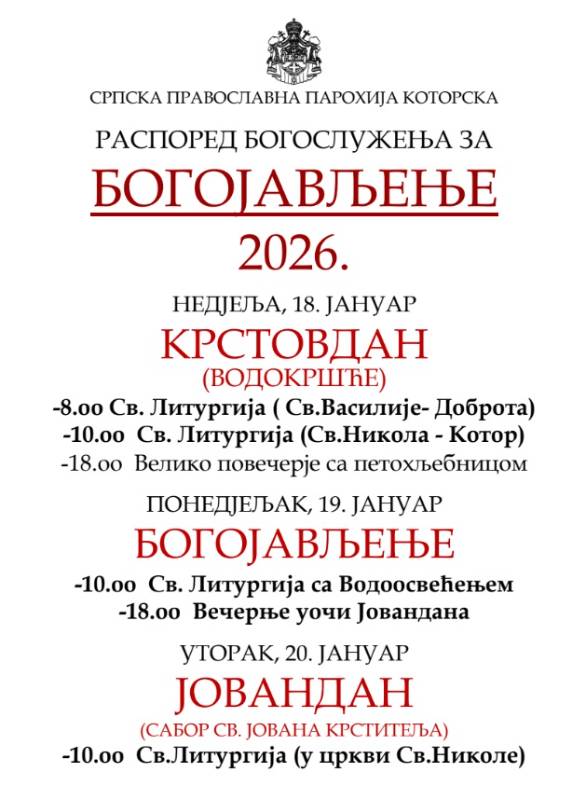
SCHEDULE OF THE EPIPHANY DAY 2026
SUNDAY, JANUARY 18EPHIPHANY DAY (EPHIPHANY)-8.oo Holy Liturgy (St. Basil -...
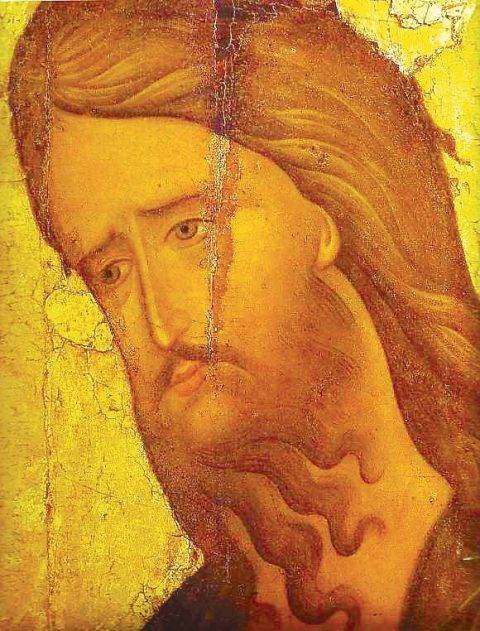
Calendar for January 20 The Feast of Saint John the Baptist – John’s Day
“The greatest born of women” (Mt. 11:11) is celebrated several...
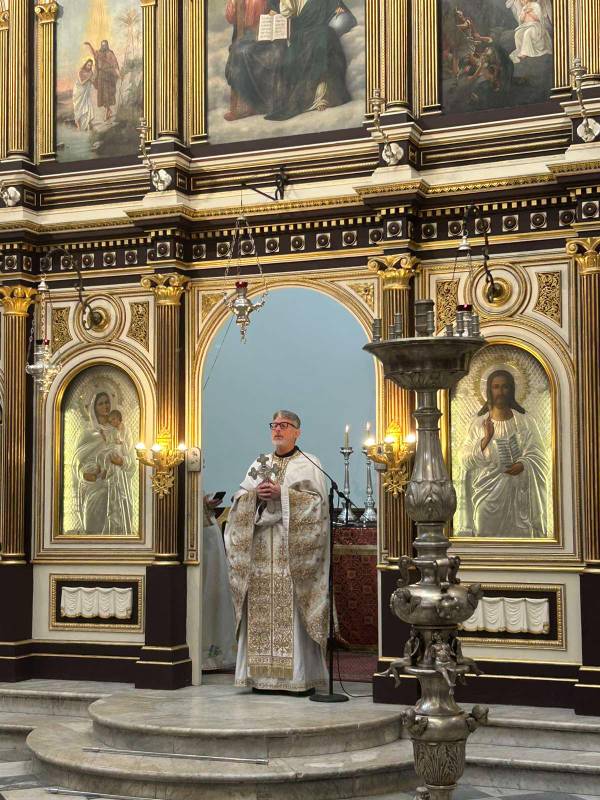
THE EPIGANIZATION CELEBRATED LITURGICALLY IN THE CHURCH OF ST. NIKOLE IN KOTOR
Today on Epiphany to the faithful people at the Holy Liturgy in the Church of...


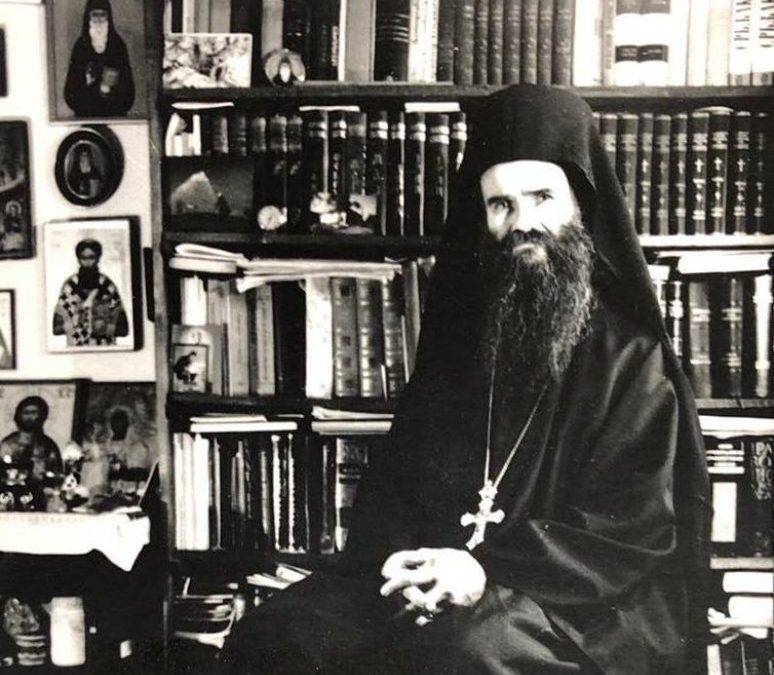

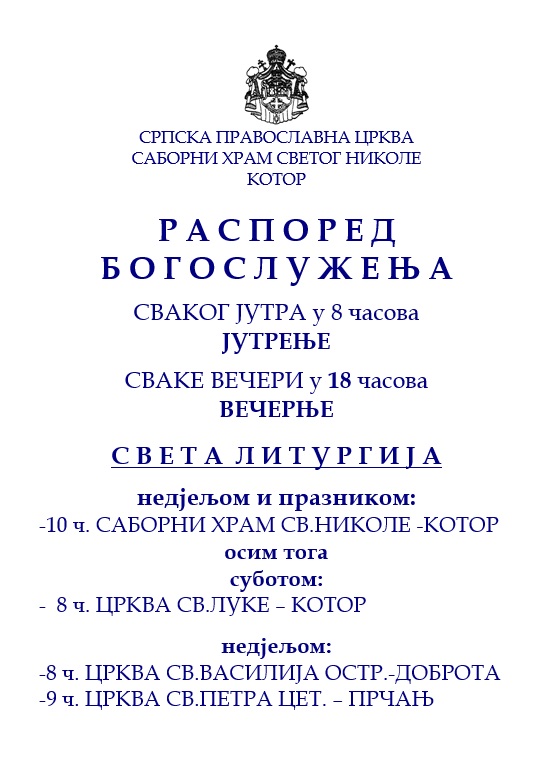
.png)